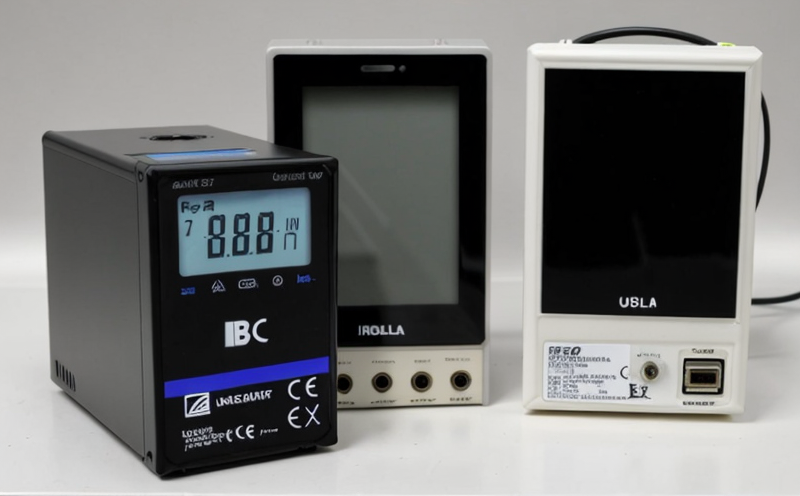EN 62133 Consumer Electronics Portable Rechargeable Battery Testing
The European Standard EN 62133 is an essential guideline for the design, manufacture, and testing of portable rechargeable batteries used in consumer electronics. This standard covers a wide range of safety requirements that ensure the safe handling, storage, transport, and use of these batteries.
The primary purpose of this standard is to prevent fires, explosions, or other hazards associated with battery malfunctions. It provides comprehensive instructions for testing various aspects of portable rechargeable batteries such as overcharge protection, short circuit protection, thermal stability, and more. The tests are designed to evaluate the electrical performance, mechanical integrity, and environmental robustness of the battery.
The standard applies not only to the batteries themselves but also to the devices in which they are used. This includes ensuring that the battery is properly integrated into the device's design and operation. The testing procedures outlined in EN 62133 help manufacturers comply with regulations set by various countries around the world, including European Union directives.
Consumer electronics companies must be meticulous about meeting these standards to avoid potential recalls or product bans. Eurolab provides services that can assist in ensuring compliance through rigorous testing and certification processes. Our expertise lies in understanding both the technical requirements of EN 62133 as well as the broader implications for manufacturers.
Our team uses state-of-the-art equipment and follows strict protocols to conduct all tests according to the standard. By leveraging our experience, we ensure that your products not only meet but exceed these stringent safety standards.
The following sections will delve deeper into specific areas of EN 62133 testing as well as highlight why Eurolab is uniquely positioned to assist you in achieving compliance with this important standard.
Applied Standards
| Standard | Description |
|---|---|
| EN 62133:2013 | This European Standard specifies the requirements for rechargeable batteries intended for use in portable electronic devices. It covers safety aspects related to design, manufacture, and operation. |
| IEC 62133:2015 | The International standard equivalent to EN 62133, it provides additional details on the safety measures necessary for portable rechargeable batteries in consumer electronics. |
| UL 1642 | This American National Standard sets out the safety requirements for lithium-based cells and batteries. While not directly aligned with EN 62133, it is often used as a reference standard by manufacturers globally. |
The combination of these standards ensures comprehensive coverage across different regions and regulatory frameworks. Compliance with EN 62133 helps companies navigate international markets confidently while meeting local requirements.
Scope and Methodology
The scope of EN 62133 includes the following key areas:
- Overcharge Protection: Ensures that the battery can safely withstand overcharging without risk of explosion or fire.
- Short Circuit Protection: Prevents dangerous short circuits which could lead to thermal runaway and subsequent hazards.
- Thermal Stability: Tests the battery's ability to maintain stability under various temperature conditions, ensuring safe operation in different environments.
- Battery Management Systems (BMS): Evaluates whether the BMS is functioning correctly to control charging and discharging processes safely.
- Disassembly: Checks for any hazardous materials that might be released during disposal or accidental opening of the battery.
The methodology involves rigorous testing procedures designed to simulate real-world scenarios. For instance, overcharge protection is tested by subjecting the battery to a controlled environment where it receives excessive charge until it reaches its maximum capacity and then continues to receive power for an extended period.
Each test requires careful preparation of the specimen, which includes selecting appropriate cells based on their specifications, assembling them into packs if necessary, and ensuring they are in good working order before testing begins. Once prepared, these specimens undergo a series of tests aimed at assessing their safety features thoroughly.
The results from these tests provide valuable insights into how well your product complies with EN 62133 requirements. Eurolab’s experts analyze these results and prepare detailed reports that outline any non-compliance issues along with recommendations for improvement.
Eurolab Advantages
At Eurolab, we pride ourselves on offering unparalleled expertise in battery testing services. Our comprehensive approach ensures that you receive accurate and reliable test results every time:
- Comprehensive Knowledge Base: Our team comprises highly skilled professionals who stay updated on all relevant standards including EN 62133.
- State-of-the-Art Facilities: We utilize cutting-edge equipment that adheres to the latest technological advancements, allowing us to deliver precise measurements and analyses.
- Extensive Experience: With years of experience in this field, our staff understands both technical aspects and regulatory requirements.
- Certified Compliance: We hold certifications from recognized bodies that validate our capabilities and commitment to quality.
- Client-Focused Solutions: Tailored testing plans designed specifically for your unique needs and goals.
- Rapid Turnaround Times: Efficient processes ensure quick delivery of results, minimizing downtime for you.
Choose Eurolab for all your battery testing needs. Let us help you ensure that your products are safe and compliant with industry standards like EN 62133.





